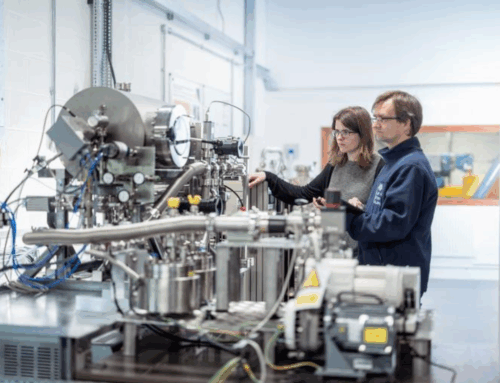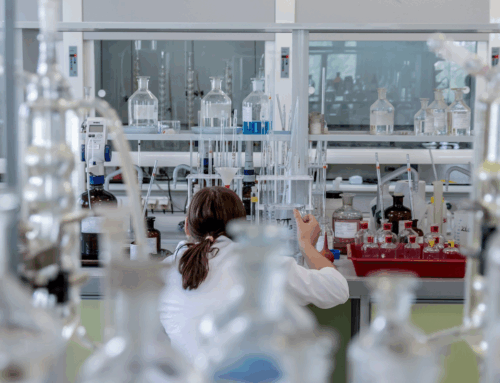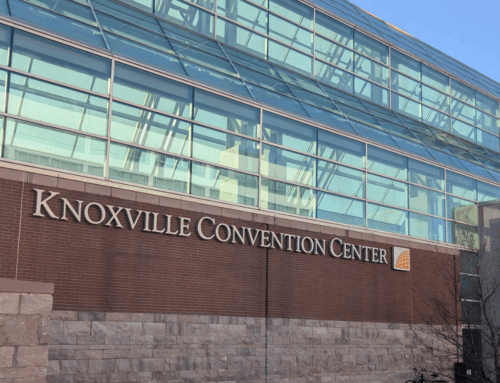ISI actively promotes student opportunities and team development through its partnership with the South East Physics Network (SEPnet). Through this collaboration, ISI offers paid summer placements where students apply their academic knowledge within a commercial environment.
The SEPnet scheme supports physics and, since 2020, mathematics undergraduates in years two and three at partner universities. These include Hertfordshire, Kent, Open, Portsmouth, Queen Mary, Royal Holloway, Southampton, Surrey, and Sussex. Students complete an eight-week paid placement in a scientific workplace, applying theory to real-world challenges. They gain technical experience, learn workplace expectations, and develop valuable professional skills. In return, companies benefit from their fresh insight and analytical approach, helping projects progress faster. This hands-on experience strengthens employability and often leads to future job opportunities with the host company.
After completing their placements, students present a project poster outlining the challenge, solution, and results. These posters feature at the annual SEPnet Students’ Expo held in London.
2019
In 2019, Callum Morgan and Joe Stickland spent their placements with us. While completing his second year of a BSc in Astrophysics at the University of Sussex, Callum developed a compact near-IR spectrometer to advance ISI’s remote-sensing capabilities. He determined the appropriate spectral response range and operating temperature and sourced a detector. He also performed irradiance calibration and wrote code to determine the coefficients required to calibrate the system satisfactorily. The new code displayed intensity rather than counts.
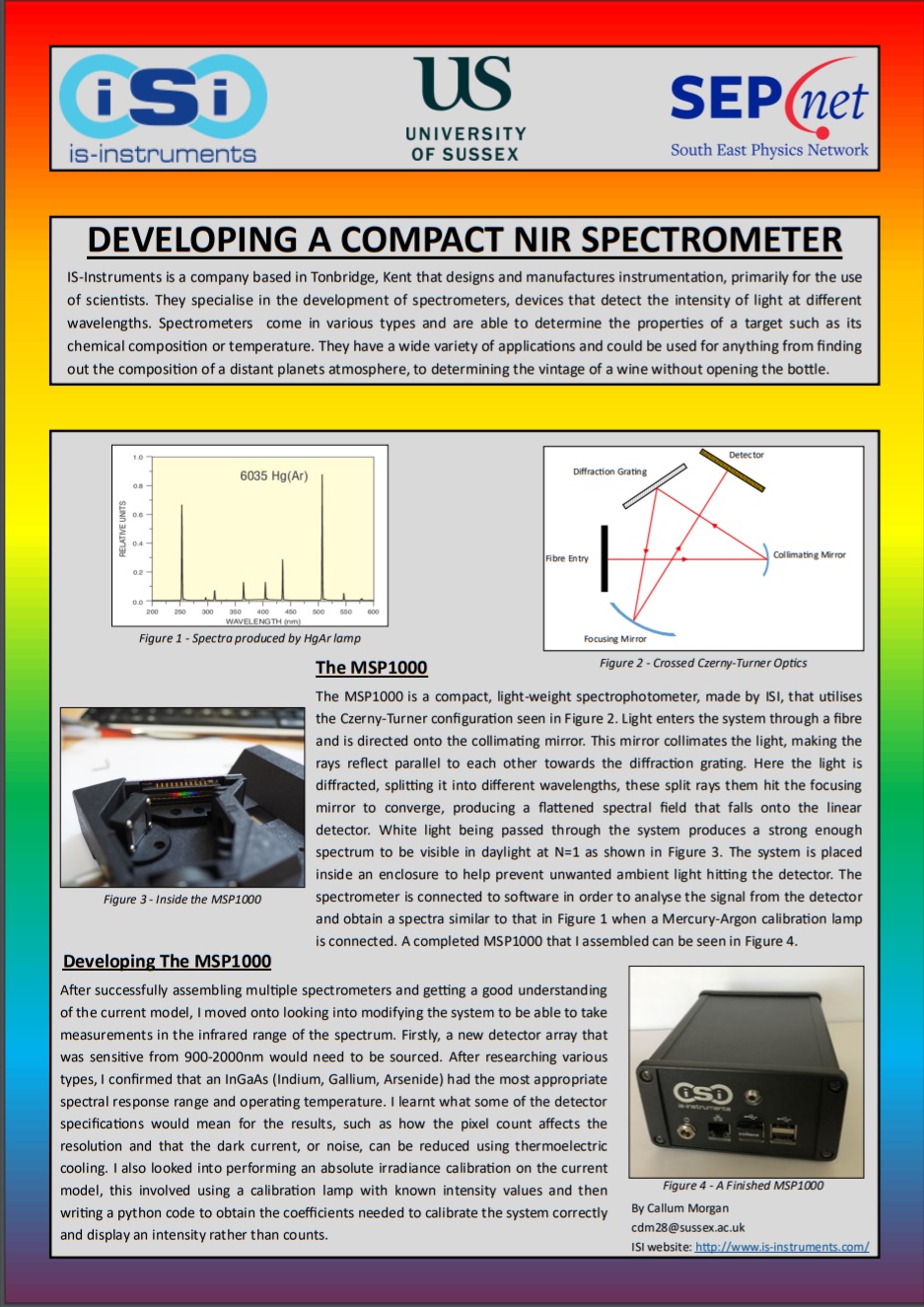
Joe Stickland was in his second year at the University of Southampton studying for an MPhys when he came to ISI for a summer placement. He was interested in our work designing instruments for use in hazardous environments, particularly nuclear decommissioning. Joe helped to develop a stand-off Raman probe for mounting on a robotic vehicle for remote deployment into a nuclear glovebox or cell.
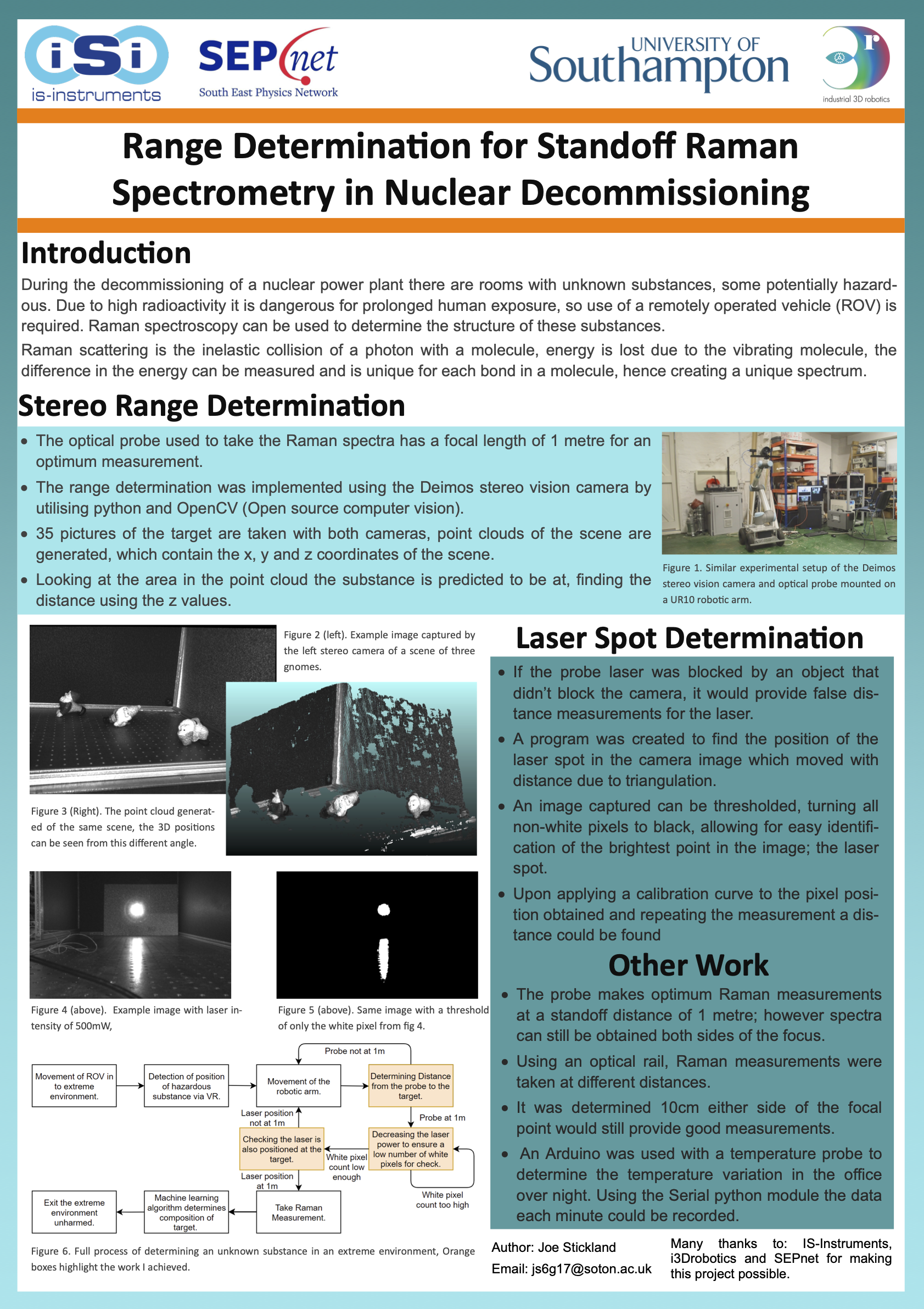
Both Callum’s and Joe’s posters won awards at the SEPnet annual Expo.
2021
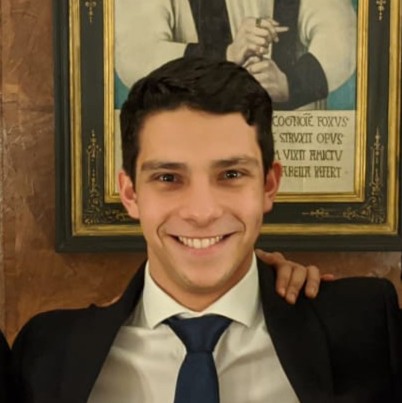
In 2021, David Alves Rodrigues joined ISI as a summer intern. At the time, he was a second-year Physics student at Royal Holloway, University of London. After completing his optics and statistical analysis module, David developed a strong interest in machine learning (ML) and coding. He was particularly intrigued by their application in spectroscopy.
ISI sought a student interested in developing ML algorithms for Raman spectral analysis, which aligned perfectly with David’s goals.
Before joining, David had solved weekly Python challenges involving statistical analysis, LCR circuit modelling, and X-ray diffraction. He regularly used NumPy, SciPy, and Matplotlib for data processing and visualisation. He was also completing Python, Data Visualisation, and Intro to ML courses on Kaggle. Through these, he explored key ML concepts, including model validation, underfitting, and overfitting.
At ISI, David applied his coding skills to a complex, real-world challenge. He used TensorFlow to create and train an ML model for chemical identification and employed Pandas to manage and transform data for processing. He also built an automated ML pipeline covering data cleaning, transformation, and photo analysis. David quickly became a valued team member, contributing effectively to ongoing projects. He proved himself a capable, engaging intern who delivered measurable results and integrated seamlessly with the ISI team.
2022
In 2022, Eszter Gyarmathy joined us. She was in her second year at the University of Southampton studying for an integrated Master’s degree in Physics. Eszter actively sought a placement with ISI because our work addresses global challenges, like nuclear decommissioning. Additionally, our projects to develop technologies that will enable core industries to meet their net-zero carbon targets were pertinent to her studies. Eszter worked with us to redevelop our current Miniature Spectrometer as a Mini Raman system.
On completing her eight weeks with us, Eszter wrote a LinkedIn post that highlights why we feel it’s so important to be part of the SEPnet programme – she got so much out of it:
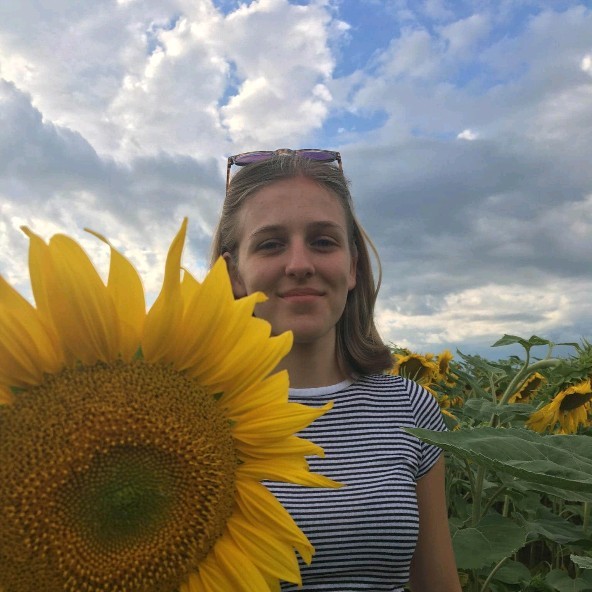 “I feel incredibly lucky that my first in-person internship has been such a pleasant and rewarding experience. Being a Physics undergraduate interested mainly in academia and research, working in industry was eye-opening. I was able to work on every aspect of the project, from designing to assembling and testing the instruments, which made the experience all the more exciting and challenging.
“I feel incredibly lucky that my first in-person internship has been such a pleasant and rewarding experience. Being a Physics undergraduate interested mainly in academia and research, working in industry was eye-opening. I was able to work on every aspect of the project, from designing to assembling and testing the instruments, which made the experience all the more exciting and challenging.
Not only did it teach me countless technical and industry-specific skills, but it also developed my interpersonal skills and built my confidence.
I am truly grateful to each and every member of IS-I and i3D robotics for being so welcoming and supportive. I want to give a special thanks to Dr Jonathan Storey, Will Brooks and Charles Warren for all the help during my internship.
There are few teams that can compare to IS-I in terms of working environment. I will never forget the team lunches on random weekdays, the Team Day full of games and fun, the time Jessica Gabb offered help with shopping when I was ill, or the day when not one but two colleagues wanted to give me a lift as it was raining. The world really needs more workplaces like this.
I would also like to thank SEPnet and the University of Southampton, as this project would not have been possible without their support.”
Eszter was an enthusiastic and motivated team member, and everyone was sorry when her placement ended. We said goodbye with our thanks and wished her the best of luck for her final year at uni.
“ISI started primarily as a research and development company and grew into a commercial one as our product line developed. Innovation is crucial to the R&D process, and when we bring students into our company, we benefit enormously. Their fresh set of eyes, different energy, and their innate curiosity are all invaluable. All of the SEPnet students have contributed meaningfully to the projects we’ve been running. The arrangement is reciprocal – they benefit from working in a commercial environment and solving real challenges, whilst being paid for their time. Everyone wins!” Dr Michael Foster, ISI co-founder & Director.
ISI continues to offer placements whenever the opportunity arises.



